Coffee Tasting Class & Roastery Tour at City Boy Coffee
Sample a diverse selection of coffees sourced from around the globe, then roasted right here in New York City!


The saga of Untapped Cities writer Amrit Chima’s new novel Darshan continues in Colonial Fiji with the very capable yet deeply insecure Manmohan. Burdened with the guilt of his father Baba Singh’s long ago passionate crime of murder (see Part I), Manmohan chooses to break ties and remain behind in Fiji after Baba decides it is time to return to India.
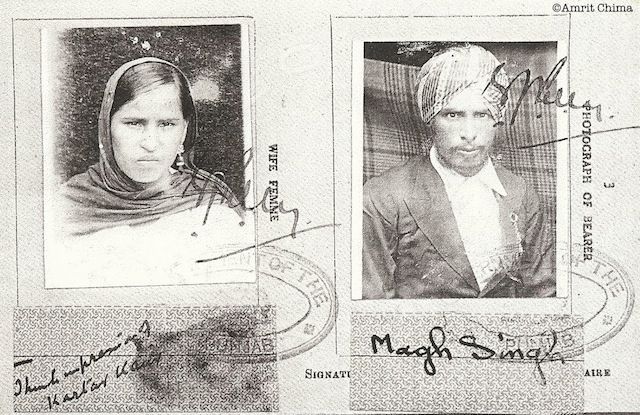 c.1930s: Passport photos of Chima’s grandmother, Kartar Kaur, and grandfather, Magh Singh, for their travels from India to Fiji
c.1930s: Passport photos of Chima’s grandmother, Kartar Kaur, and grandfather, Magh Singh, for their travels from India to Fiji
Chima bases the character of Manmohan on her grandfather, Magh Singh Chima, who like his fictional counterpart, became a successful and well-respected businessman on the islands, operating a lumber mill and establishing himself as the primary supplier of wood for the government. Luck and a very big storm that wiped out all the island’s bridges and many of its buildings, allowed Magh to earn a very lucrative living for some time. The same turn of events unfold in the novel for Manmohan, but it is in the inner workings of her characters’ minds that Chima weaves an underlying narrative.
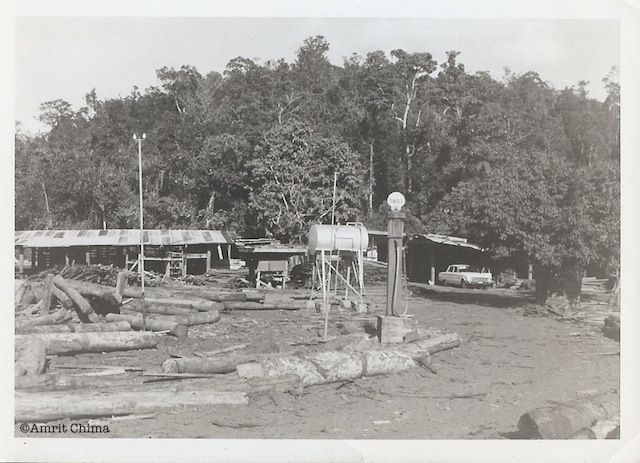 c.1950s: Above and below: The Chima lumber mill in Veisari, Fiji, just outside the capital of Suva
c.1950s: Above and below: The Chima lumber mill in Veisari, Fiji, just outside the capital of Suva
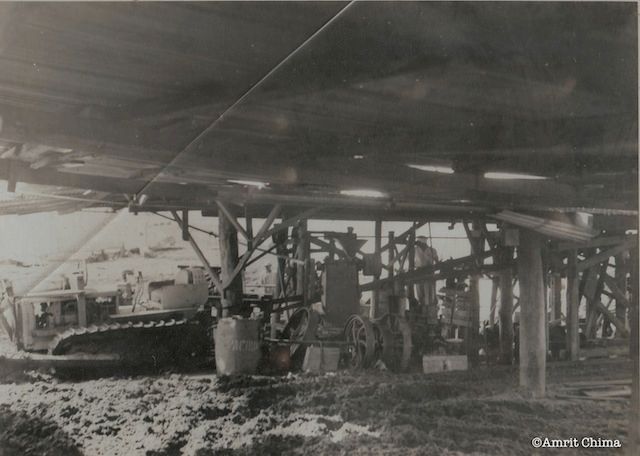
Struck by the notion that fathers often pass on their problems and fears to their children, in Chima’s story, Baba Singh cannot forgive himself for his crime and therefore cannot allow himself to truly feel or express love for his family. She illustrates the self-doubt Manmohan then experiences by continuing to use the backdrop of colonial turmoil in Fiji, highlighting the insecurities and discomfort that grow in men when they feel unloved and unwanted.
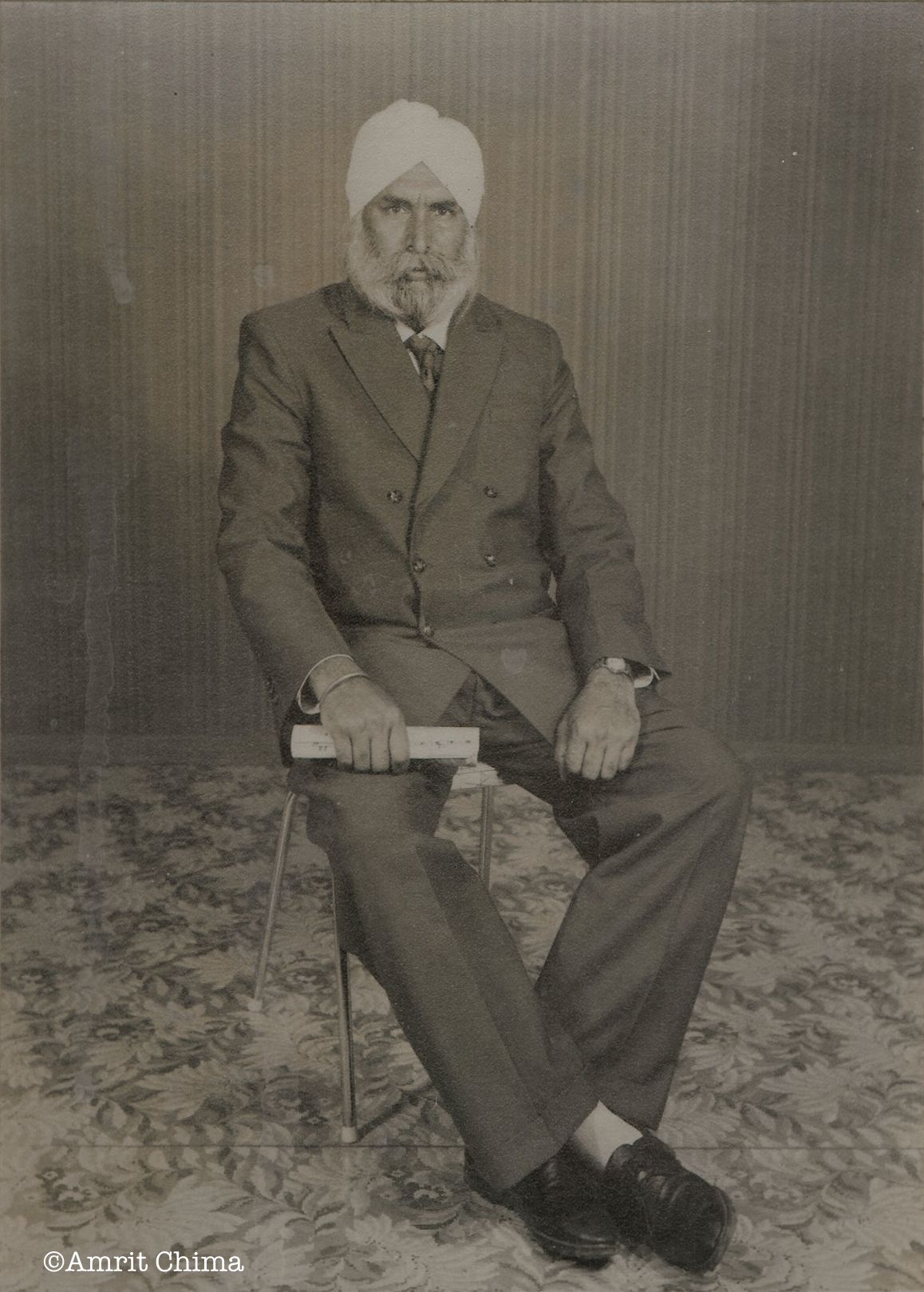 c.1950s: Chima’s grandfather, Magh Singh
c.1950s: Chima’s grandfather, Magh Singh
As in India, even in the remote colony of Fiji, the British Empire did not make it particularly easy for its subjects to earn a livelihood. There were many uprisings within corporations because of unfair British labor policies that cheated men out of decent pay. The Colonial Sugar Refining Company and the Shell and Vacuum Oil Company were prime examples of this. The former went on strike in 1943. Workers eventually made a successful point, but not without great loss of earnings. Many burned their fields to the ground, sacrificing their sales product, the only way to get the attention of the British. And their triumph was short-lived. In 1959, the Shell and Vaccum Oil Company initiated an industry-wide strike to protest the same continued British injustice. Riots soon followed. Attempting to suppress the revolt, the British tried to divide the population against each other (native Fijians against Indo Fijians), eventually manipulating attention away from the real cause of basic human rights to one of racial conflict, thereby undermining the whole message. Workers eventually went back to work without any ground gained.
And so, seeking better opportunities, Manmohan and his wife and children immigrate to California in the late 1960s. Continuing the entrepreneurial tradition established in Fiji, he opens a restaurant in Berkeley on Telegraph Avenue. Unfamiliar with the new culture, he struggles with how to promote and expand the business. Prideful, Manmohan refuses to relinquish any control, creating a number of problems the book’s eponymous character Darshan has to sort out.
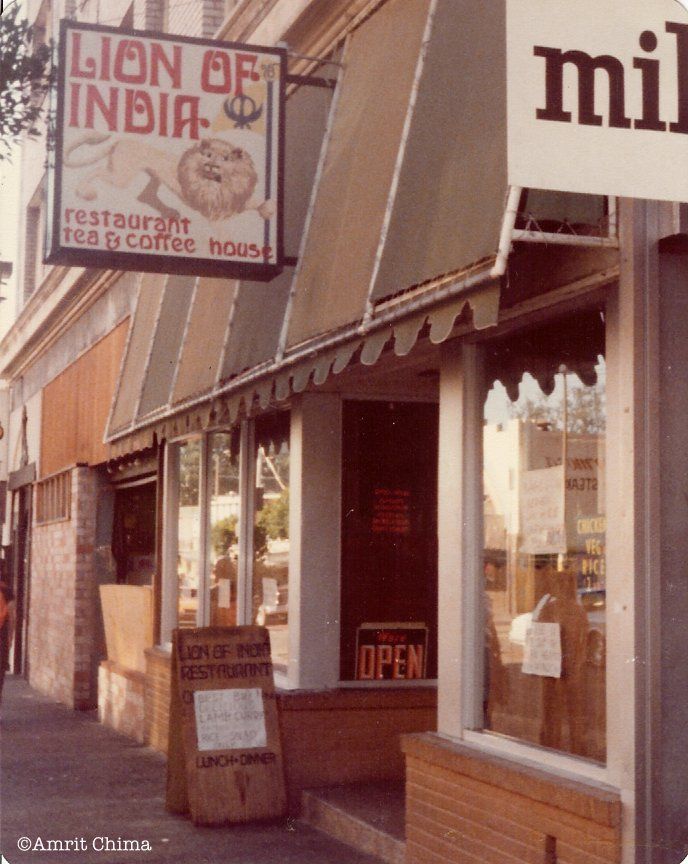 c.1970s: The Lion of India in Berkeley, California
c.1970s: The Lion of India in Berkeley, California
The bitter legacy of Baba Singh’s crime of murder does not exist in real life, Chima says, but in her story, it lingers two generations later with his grandchildren and threatens to overtake the next generation as well. Like Manmohan, they too adopt the burden of guilt that has weakened and splintered the family as a whole. As Baba’s grandson, Darshan, struggles to piece everything back together and build a life in San Francisco, there are others who fight against him, attempting to tear everyone and everything apart. Except this time it’s not the British, but his own family.
Chima’s epic novel Darshan beautifully captures the angst of 20th century British Imperialism and its long-lasting effects into modern day. And also, by using her family history as the basis for her novel, she reminds us that we, too, are all connected to a much larger, collective historical past through our own unique family stories.
Chima is currently offering limited-edition copies of Darshan on Kickstarter that will include historical family photos that inspired many of her descriptions, including some of those seen above. She is raising funds to publish her book, a page-turner that would peak the interest of anyone with a liking for epic family drama, history, and intrigue. You can also learn more by visiting www.amritchima.com.
Subscribe to our newsletter